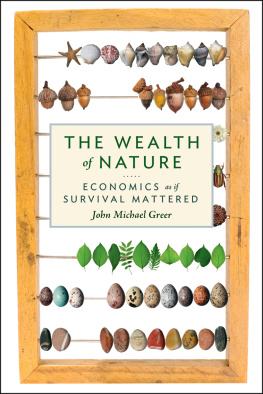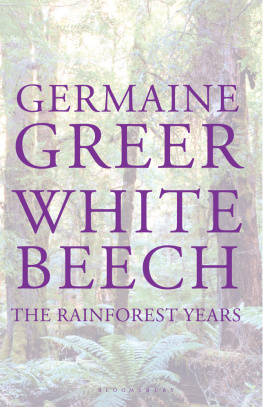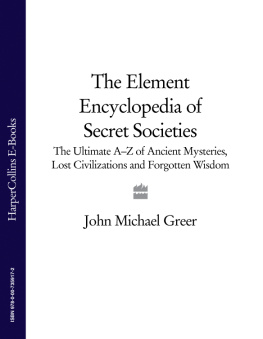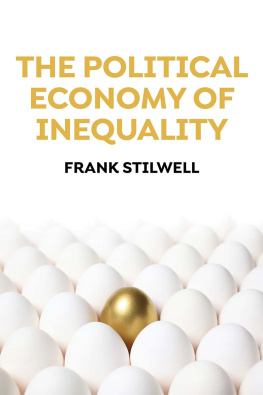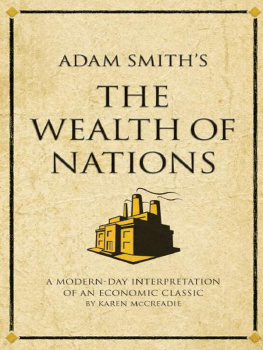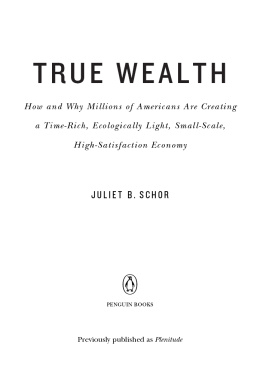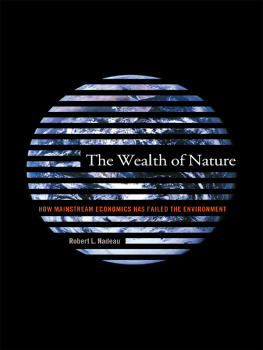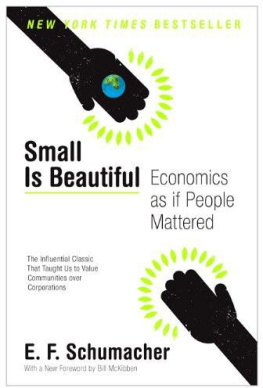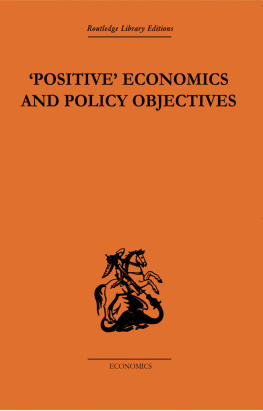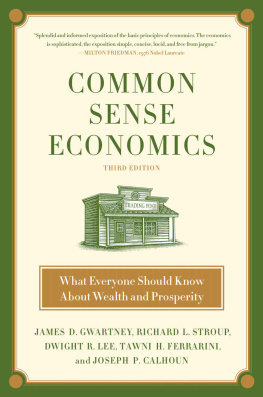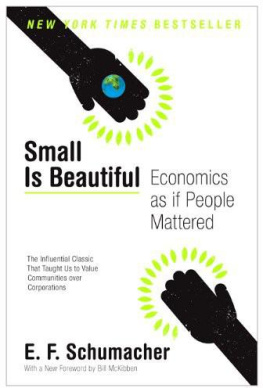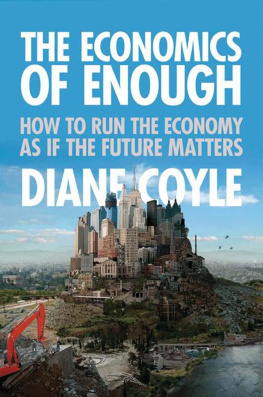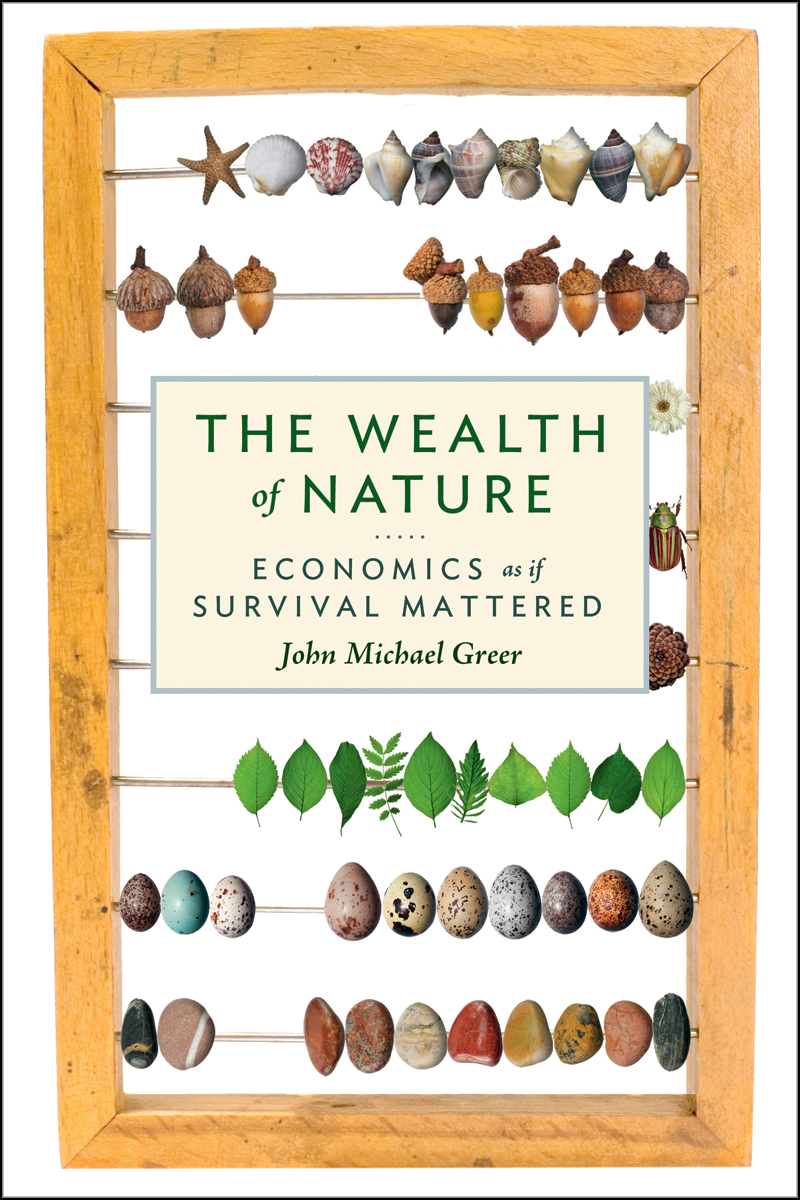
Contents

I MAGINE FOR A MOMENT that you are on board a sailing ship in the middle of the ocean. You wake in the middle of the night with an uneasy feeling, as if trouble is brewing. You get dressed and go on deck. Its a clear night with a steady wind, and you can see some distance over the water; as you glance off to starboard, though there is no land in sight, you are horrified to see waves crashing over black jagged rocks not far from the ship, setting the sea afoam.
You hurry aft to the midship bridge to warn the crew members on watch, and find the first mate and several other crew members sitting there, calmly smoking their pipes and paying no attention to the rocks. When you ask them about the rocks, they deny that any such thing exists in that part of the ocean, and insist that what youve seen is an optical illusion common in those latitudes. One of the crew members takes you into the chart room and shows you a chart with the ships progress marked on it. Sure enough, there are no rocks anywhere near the ships course, but as you glance over the chart you realize that there are no rocks marked anywhere else, either, nor any reefs, shoals or other hazards to navigation.
You leave the chart room, shaking your head, and glance at the compass in the binnacle. This only increases your discomfort; its needle indicates that magnetic north ought to be off the port bow, but a glance up at the sky shows the Little Dipper dead astern. When you mention this to the crew members, though, they roll their eyes and tell you that you obviously havent studied navigation. You leave the midship bridge and walk forward, looking ahead to see where the ship is going, and sure enough, the pale gleam of rough water around rocks shows up in the distance.
It would be comforting if this scenario was just a nightmare; unfortunately, it mirrors one of the most troubling realities of contemporary life. The metaphoric charts and compass used nowadays to guide most of the important decisions made by the worlds nations come from the science of economics, and the policy recommendations presented by economists to decision makers and ordinary people alike consistently fail to provide useful guidance in the face of some of the most central challenges of our time.
This may seem like an extreme statement, but the facts to back it up are as close as the nearest Internet news site. Consider the way that economists responded or, rather, failed to respond to the gargantuan multinational housing boom that imploded so spectacularly in 2008, taking much of the global economy with it.1 This was as close to a perfect example of a runaway speculative bubble as youll find anywhere in recent history. The extensive literature on speculative bubbles, going back all the way to Rev. Charles Mackays Extraordinary Popular Delusions and the Madness of Crowds, made it no challenge at all to recognize that the housing boom was simply another example of this species. All the classic symptoms were present and accounted for: the dizzying price increases, the huge influx of amateur investors, the giddy rhetoric insisting that prices could and would keep on rising forever, the soaring rate of speculation using borrowed money and more.
By 2005, accordingly, a good many people outside the economics profession were commenting on parallels between the housing bubble and other speculative binges. By 2006 the blogosphere was abuzz with accurate predictions of the approaching crash, and by 2007 the final plunge into mass insolvency and depression was treated in many circles as a foregone conclusion as indeed it was by that time. Keith Brand, who founded the lively HousingPanic blog in 2005 to publicize the approaching disaster, and kept up a running stream of acerbic commentary straight through the bubble and bust, summarized those predictions with a tag line that could serve as the epitaph for the entire housing frenzy: Dear God, this is going to end so badly.2
Yet its a matter of public record that among those who issued these warnings, economists were as scarce as hens teeth. Rather, most economists at the time dismissed the idea that the housing boom could be what it patently was, a disastrous speculative bubble. Nouriel Roubini, one of the few exceptions, has written wryly about the way he was dismissed as a crank for pointing out what should have been obvious to everybody else in his profession.3 For whatever reason, it was not obvious at all; the vast majority of economists who expressed a public opinion on the bubble while it was inflating insisted that the delirious rise in real estate prices was justified, and that the exotic financial innovations that drove the bubble would keep banks and mortgage companies safe from harm.
These comforting announcements were wrong. Those who made them should have known, while the words were still in their mouths, that they were wrong. No less an economic luminary than John Kenneth Galbraith pointed out many decades ago that in the financial world, the term innovation inevitably refers to the rediscovery of the same small collection of emotionally appealing bad ideas that always lead to economic disaster when they are applied to the real world.4 Galbraiths books The Great Crash 1929 and A Short History of Financial Euphoria, which chronicle the repeated carnage caused by these same bad ideas in the past, can be found on the library shelves of every school of economics in North America, and anyone who reads either one can find every rhetorical excess and fiscal idiocy of the housing bubble faithfully duplicated in the great speculative binges of the past.
If the housing bubble were an isolated instance of failure on the part of the economics profession, it might be pardonable, but the same pattern of reassurance has repeated itself as regularly as speculative bubbles themselves. The same assurances were offered in some cases, by the same economists during the last great speculative binge in American economic life, the tech-stock bubble of 19962000. Identical assurances have been offered by the great majority of professional economists during every other speculative binge since Adam Smiths time. More than two hundred years of glaring mistakes would normally be considered an adequate basis for learning from ones errors, but in this case it has apparently been insufficient.
The Illusion of Invincibility
The problem with contemporary economics can be generalized as a blindness to potential disaster. This can be traced well outside the realm of bubble economics. Consider the self-destruction of Long Term Capital Management (LTCM) in 1998.5 LTCM was one of the first high-profile hedge funds, and made money for a while, quite a bit of it by staking huge amounts of other peoples funds on complex transactions based on intricate computer algorithms. It prided itself on having two Nobel laureates in economics on staff. Claims circulating on Wall Street during the firms glory days had it that LTCMs computer models were so good that they could not lose money in the lifetime of this universe or three more like it.
Have you ever noticed that villains in bad science fiction movies usually get blown to kingdom come a few seconds after saying I am invincible? Apparently the same principle applies in economics, though the time lag is longer. It was some five years after LTCM launched its computer-driven strategy that the universe ended, slightly ahead of schedule. LTCM got blindsided by a Russian foreign-loan default that many other people saw coming, and failed catastrophically. The US government had to arrange a hurried rescue package to keep the implosion from causing a general financial panic.
Next page
